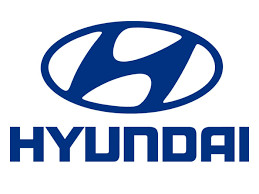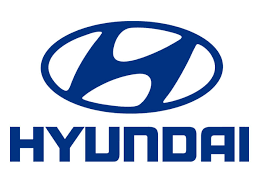
As the race to develop internet-connected cars picks up pace, Hyundai Motor has joined the ranks of global carmakers turning to new technologies partnering with US-based Cisco Systems.
As part of a long-term push into driverless vehicle technology the South Korean carmaker this month revealed a road map to developing “hyper-connected intelligent cars” and the technology alliance with Cisco comes amidst this event of the company.
Automakers around the globe are teaming up with tech groups to work on the requisite technology as competition to control the future of driving intensifies. A five-year-old partnership with Microsoft to develop new internet-connected vehicle services was expanded by Toyota earlier this month. Last month General Motors bought driverless car start-up Cruise for $1bn.
This is the first instance that Hyundai has tied up with a tech group with the aim of focusing on connected car development. Research and development of future technologies such as in-vehicle networks, big data analytics and connected car security technologies are areas where the car maker is expanding its investment and this tie up is a part of that strategy.
“It is an area that global carmakers cannot ignore because future growth will come from such innovative technologies and services,” said Chung Sung-yop, an analyst at Daiwa Securities.
“This collaboration will be a chance to bring closer the Hyundai Motor-led future of connected cars and shift paradigms of new mobility,” said Hyundai’s vice-chairman Chung Eui-sun on Tuesday.
According to Daiwa, with respect to the number of technology patents in advanced driver assistance systems, Hyundai is ranked number two just behind Japanese rival Toyota.
As it grapples with a downturn in its fortunes amid slowing sales in China and other emerging markets, its stronghold, the South Korean carmaker is trying to find new growth drivers. As China’s economic slowdown damped sales in the world’s largest car market, Hyundai posted its lowest annual profit in five years in 2015.
The industry contemplates a future of driverless and shared vehicles
As it tackles growing inventories and boosts sales promotion incentives, analysts expect Hyundai to report weak first-quarter earnings next week.
Although chairman Chung Mong-koo said last week that Hyundai and affiliate Kia Motors are on track to hit their annual sales goal, the company reported a 6.4 per cent fall in vehicle shipments in the January-March period.
Against a global industry projection of 2.9 per cent growth for 2016, the two carmakers, which together rank fifth in global vehicle sales, are targeting a 1.5 per cent increase in sales this year.
There was a fall of 2 per cent in March from a year earlier in the sale of Hyundai’s vehicles in China, its biggest market. In response to a shift in consumer preference for cheaper, locally made sports utility vehicles, the company has been forced to cut prices in China.
As emerging market economies show signs of improvement and as the carmaker adds more SUVs to its sedan-heavy product line-up, analysts expect Hyundai’s earnings to improve from the second quarter.
(Source:www.ft.com)
As part of a long-term push into driverless vehicle technology the South Korean carmaker this month revealed a road map to developing “hyper-connected intelligent cars” and the technology alliance with Cisco comes amidst this event of the company.
Automakers around the globe are teaming up with tech groups to work on the requisite technology as competition to control the future of driving intensifies. A five-year-old partnership with Microsoft to develop new internet-connected vehicle services was expanded by Toyota earlier this month. Last month General Motors bought driverless car start-up Cruise for $1bn.
This is the first instance that Hyundai has tied up with a tech group with the aim of focusing on connected car development. Research and development of future technologies such as in-vehicle networks, big data analytics and connected car security technologies are areas where the car maker is expanding its investment and this tie up is a part of that strategy.
“It is an area that global carmakers cannot ignore because future growth will come from such innovative technologies and services,” said Chung Sung-yop, an analyst at Daiwa Securities.
“This collaboration will be a chance to bring closer the Hyundai Motor-led future of connected cars and shift paradigms of new mobility,” said Hyundai’s vice-chairman Chung Eui-sun on Tuesday.
According to Daiwa, with respect to the number of technology patents in advanced driver assistance systems, Hyundai is ranked number two just behind Japanese rival Toyota.
As it grapples with a downturn in its fortunes amid slowing sales in China and other emerging markets, its stronghold, the South Korean carmaker is trying to find new growth drivers. As China’s economic slowdown damped sales in the world’s largest car market, Hyundai posted its lowest annual profit in five years in 2015.
The industry contemplates a future of driverless and shared vehicles
As it tackles growing inventories and boosts sales promotion incentives, analysts expect Hyundai to report weak first-quarter earnings next week.
Although chairman Chung Mong-koo said last week that Hyundai and affiliate Kia Motors are on track to hit their annual sales goal, the company reported a 6.4 per cent fall in vehicle shipments in the January-March period.
Against a global industry projection of 2.9 per cent growth for 2016, the two carmakers, which together rank fifth in global vehicle sales, are targeting a 1.5 per cent increase in sales this year.
There was a fall of 2 per cent in March from a year earlier in the sale of Hyundai’s vehicles in China, its biggest market. In response to a shift in consumer preference for cheaper, locally made sports utility vehicles, the company has been forced to cut prices in China.
As emerging market economies show signs of improvement and as the carmaker adds more SUVs to its sedan-heavy product line-up, analysts expect Hyundai’s earnings to improve from the second quarter.
(Source:www.ft.com)














